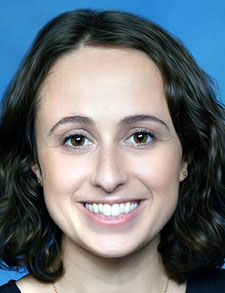Slower Correction of Sodium in Severe Hyponatremia is Associated with Increased Mortality and Length of Stay
Clinical question: Is the sodium correction rate in severe hyponatremia associated with mortality and length of stay?
Background: Hyponatremia is commonly encountered in the hospital, with high levels of associated in-hospital mortality. Prior literature has associated rates of sodium correction more rapid than 12 mEq/L in 24 hours with the development of osmotic demyelination syndrome and central pontine myelinolysis. U.S. guidelines currently recommend a rate of sodium correction of sodium of 8 mEq/L per day in high-risk patients and 10 to 12 mEq/L per day in normal-risk patients with chronic severe hyponatremia. Few studies have associated slower sodium correction rates with increased mortality, but no larger studies have examined this relationship.
Study design: Multicenter retrospective cohort study
Setting: Two academic medical centers (Massachusetts General Hospital and Brigham and Women’s Hospital) between January 1, 1993 and December 31, 2018
Synopsis: A cohort of 3,274 patients ages 18 and older with severe hyponatremia (<120 mEq/L) were included, with correction rates of <6 mEq/L/24 hours (38%), 6 to 10 mEq/L/24 hours (29%), and >10 mEq/L/24 hours (33%). Common comorbidities of included patients were COPD, malignancy, and congestive heart failure. Primary observed outcomes were mortality rates (in-hospital, 30-day), length of stay, and 90-day incidence of CPM.
In a multivariable model, patients with a correction rate >10 mEq/L/24 hours had lower odds of in-hospital, and 30-day mortality compared with patients with a correction rate 6-10 mEq/L/24 hrs, whereas patients with a correction rate <6 mEq/L/24 hours had higher odds of mortality. The group with a rate of correction >10 mEq/L/24 hours had a shorter average length-of-stay by 2.2 days compared to the group with a rate of correction 6-10 mEq/L/24 hrs. Seven patients enrolled in the study developed CPM, with no association with the rate of sodium correction. Six of the seven patients had risk factors of malnutrition, electrolyte abnormalities (low potassium, low phosphorus), or alcohol use disorder.
Bottom line: Slower sodium correction rates, notably those under 6 mEq/L/day, in patients hospitalized with severe hyponatremia were associated with increased mortality and length of stay, but no association was found with sodium correction rate and the incidence of osmotic demyelination syndrome.
Citation: Seethapathy H, et al. Severe hyponatremia correction, mortality, and central pontine myelinolysis. NEJM Evid. 2023;2(10):EVIDoa2300107. doi: 10.1056/EVIDoa2300107.
 Dr. Leyens is an academic hospitalist in the divisions of general internal medicine and pediatric hospital medicine at the University of Pittsburgh Medical Center, and an assistant professor of internal medicine and pediatrics at the University of Pittsburgh School of Medicine, both in Pittsburgh.
Dr. Leyens is an academic hospitalist in the divisions of general internal medicine and pediatric hospital medicine at the University of Pittsburgh Medical Center, and an assistant professor of internal medicine and pediatrics at the University of Pittsburgh School of Medicine, both in Pittsburgh.